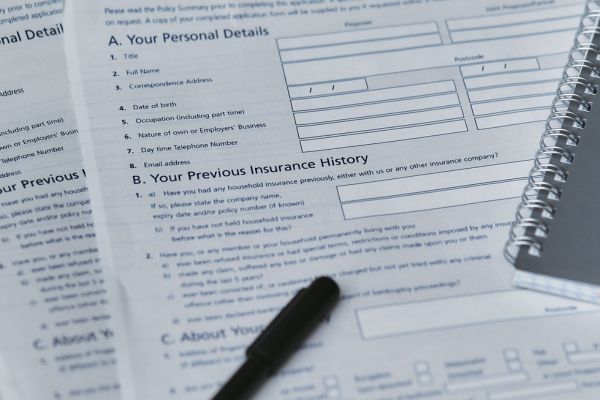There’s a lot to consider when planning for college, including how you’ll pay for healthcare. Utah Valley University students have many health insurance options that help cover the cost. We’ll explore the most common ones here and also answer the question “Does UVU Offer Health Insurance For Students?”.
Does UVU Offer Health Insurance For Students?
UVU does not have a set, official insurance option to offer students, and while the Wellness Center offers great services for relatively cheap prices, most of UVU’s health services are free programs like ULifeline and HealthQuest designed to do little to provide long-term medical and dental benefits. UVU offers a smoking cessation program, HRA’s (Health Risk Appraisals), health screenings and even a walking group, but there is no student health insurance.
Utah Valley University
Utah Valley University doesn’t require domestic (U.S.) students to have health insurance and you don’t need it to access student health services.5 The student health center is not a Medicaid provider, which means students covered by Medicaid will need to look for providers within the community or pay out-of-pocket rates. International students on J-1 visas must have health insurance, and the university provides guidance on choosing an insurance policy but doesn’t offer a plan.
Why Do Utah Students Need Health Insurance?
Even if you’re young and healthy, you need to see a doctor from time to time. Health insurance helps cover the cost of certain healthcare services, from preventive care to hospital stays, depending on your policy. Without it, you’ll have to pay your medical bills entirely out of pocket.
What Should You Consider When Searching for Student Health Coverage in Utah?
With so many options, you may feel a bit overwhelmed as you look for student health coverage. It can be helpful to first consider your health and budget. Do you have medical conditions that require ongoing care? Do you take prescription medications? How much can you afford to pay for coverage (the premiums) and when you need to see a doctor (the deductible, coinsurance and copayments)?
What If You Get Covered Through Medicaid or CHIP in Utah?
If you’re covered by Utah Medicaid or the Children’s Health Insurance Program (CHIP), you can keep it as long as you continue to qualify. Because these programs are no-cost or low-cost, it may be your most affordable option.
Be sure to see if your school’s campus health center accepts these benefits. If not, you’ll want to locate nearby providers who will or find out if coverage through your school will be affordable to you.
Medicaid and CHIP benefits don’t typically transfer between states. If you’re enrolled in one of these programs elsewhere, you’ll need to reapply for coverage in Utah. You can visit the Utah Department of Health to learn more about eligibility.
What Are Other Options for Coverage in Utah?
Catastrophic and short-term health plans tend to have lower monthly premiums than unsubsidized ACA plans, which can make them appealing to young adults on a tight budget. However, they aren’t right for everyone due to eligibility rules.
Catastrophic Health Plan
If you’re under 30, or an older student with hardship and affordability exemptions, you may qualify for catastrophic health insurance. Available through the federal Health Insurance Marketplace, these plans provide comprehensive coverage with a low monthly premium. Consequently, they also have high deductibles, which can make them a better fit for those who have few healthcare needs. Catastrophic plans are not subsidy-eligible.
Short-Term Health Insurance
Short-term health insurance is a temporary coverage option that can work well for college students who don’t have access to coverage through a parent, can’t afford an unsubsidized ACA plan, attend a school that doesn’t offer a student plan, or need coverage for a month or two.
Short-term plans are designed to help with the cost of unexpected medical bills, as opposed to preventive care or treatment for preexisting health conditions. For this reason, short-term plans tend to cost less than unsubsidized ACA plans.
Utah short-term health insurance policies can last up to 364 days, with renewals up to 36 months.4 You can quickly apply for short-term health insurance online or through an agent. However, coverage is not a guaranteed issue, which means your application can be denied if you have a preexisting condition.
What Are Resources for Utah Students?
Your college or university website can be a good starting point to learn more about student health insurance (e.g., whether it’s mandatory, student health plan information).
The Utah Department of Health offers information on applying for health insurance in Utah, including how to find in-person assistance and where to learn more about Medicaid and other public health insurance programs. Take Care Utah is another resource for gathering information about Utah health insurance options and finding local help.
To look up individual insurance companies or agents or find information about insurance-related legislation in Utah, visit the Utah Department of Insurance.
Conclusion
There isn’t a single health insurance option that’s right for all students. You’ll want to take the time to compare your options, even if you think your choice is clear. (And you’ll probably want to reevaluate each year to make sure the coverage you have is still the right choice.) To determine which coverage best meets your needs at this time, look at premium prices and cost-sharing amounts, plan benefits and exclusions, and provider networks. Contact the insurance company whose plan you’re considering if you have questions or need help with the enrollment process, or contact your school with questions about its student plan.
FAQ
1. What If You Skip Health Insurance in Utah?
There is no longer a federal tax penalty for going without health insurance. While some states have imposed their own penalties, Utah is not one of them. If you are uninsured, you’ll have to pay fully out of pocket for your healthcare.
2. What Are State-Specific Rules for Utah Students?
Utah’s colleges and universities set their own coverage requirements.
3. What Are School Requirements in Utah?
Student health insurance rules vary among Utah schools. You will need to check with your institution to learn what it requires.
4. How can students access mental health services through UVU’s health resources?
UVU offers mental health services as part of its overall health and wellness resources. Students can access these services through the university’s counseling and mental health support programs.






